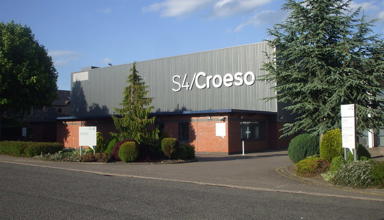The pandemic has had a significant impact on organisations that support and promote the Welsh language, according to a Fifth Senedd Committee report (2020). This includes considerable financial losses and redundancies.
The current Senedd Committee responsible for the Welsh language will examine how these organisations are recovering, and what the future holds, at its meeting on 8 December.
Impact of the pandemic
Welsh language events and activities provide opportunities for Welsh-speakers to use the language, and learners with a space to develop their skills. Events and activities also play a significant role in promoting the language. This is particularly true in communities where the Welsh language is less visible.
The pandemic brought this to a stop. Previously dependable income streams, including sponsorship and ticketing dried up. Membership numbers, and with them fees, dwindled.
Key organisations including the Urdd and the National Eisteddfod were forced into making redundancies and seeking financial support. Both organisations saw their workforce halve during this period. Many other staff members across the network were placed on furlough.
Back in December 2020, this network had real concerns about the future outlook for their sector. There was no timetable for resuming face-to-face events – ultimately, both the Urdd and the National Eisteddfod postponed their 2021 festivals (in physical form) for the second year in a row. Tafwyl, Menter Caerdydd’s flagship festival did resume, in part, with limited attendance in May 2021. Many other local Welsh language festivals and events were postponed or scaled back.
The Welsh Government recently announced additional funding for the Urdd and the National Eisteddfod to help with the recovery. However, some organisations within this network may not have had access to similar funds.
Merched y Wawr told the 2020 Committee inquiry its that income “virtually disappeared overnight” and it would use reserves to survive. The Wales Federation of Young Farmers Clubs also said that restrictions were going to hit them financially.
What happened to community events and activities?
The disruption to face-to-face activities provided various challenges for the network that supports and promotes the language. A number of national organisations were able to adapt some of their offering as events and activities moved online. The Urdd successfully ran its virtual Eisteddfod T, while the National Eisteddfod, Tafwyl and the Royal Welsh Show have all produced and held virtual or hybrid events.
The rapid transition to digital methods was not as easy for some. A Welsh Government survey on the effects of COVID-19 on Welsh language community groups found that only a fifth (20%) of groups had “managed to adapt their activities” following the first lockdown. And of activities usually carried out by community groups prior to the pandemic, over two-thirds (68%) hadn’t continued once lockdown started.
The Committee recommended the Welsh Government should “ensure that training is available for organisations and individuals” to “make the most of online opportunities” and to “support their members”. This was echoed in the survey of community groups, with many calling for support to develop their use of technology.
The Welsh Government has set out a series of actions to help the network of organisations to recover. It said it would “begin work immediately”, with an emphasis on “capacity building and community development and empowerment”.
What are the sector’s priorities?
Over the summer, the current Senedd Committee responsible for the Welsh language consulted on what its priorities should be for the Sixth Senedd. The Committee also received evidence as part of a one day inquiry into the Welsh language. Among the multitude of challenges and issues highlighted were:
Children faced extended periods away from school during the pandemic. Many children in non-Welsh speaking households had limited interaction with the language as a result. There were calls for more investment in Welsh language late immersion provision, and the Welsh Government announced £2.2 million to expand provision.
There were also calls to intensify activity in the field of language transmission within the home. This includes increasing the provision and support available for parents and families through schemes such as ‘Cymraeg for Kids’ and ‘Clwb Cwtsh’.
Some stakeholders wanted to see more focus on teacher recruitment and training over the next few years. The Coleg Cymraeg Cenedlaethol said it wasn’t “confident that the interventions currently in place are sufficient to transform the situation”. Increasing the number of teachers able to teach through the medium of Welsh is a key commitment in Cymraeg 2050. The most recent data shows limited progress to date.
Stakeholders questioned the adequacy of schemes to support language use within the workplace. Opportunities to interact and use the language may be more limited when working from home. As a result, stakeholders called for more focus on Welsh language community provision.
The Welsh Government has recently published its Cymraeg 2050 work programme for 2021-26. It sets out the steps the Welsh Government and others are taking to address the challenges facing the language.
What does the future hold?
The continuing uncertainty brought about by the pandemic will bring many challenges for the network that supports and promotes the language. How the network responds to these challenges will depend on the support and resources provided to it.
The network is keen to expand provision, so it can provide more opportunities for people to use and learn the language. But the network must first recover lost ground, ensuring a stable base from which to build on for the future.
Article by Osian Bowyer, Senedd Research, Welsh Parliament






